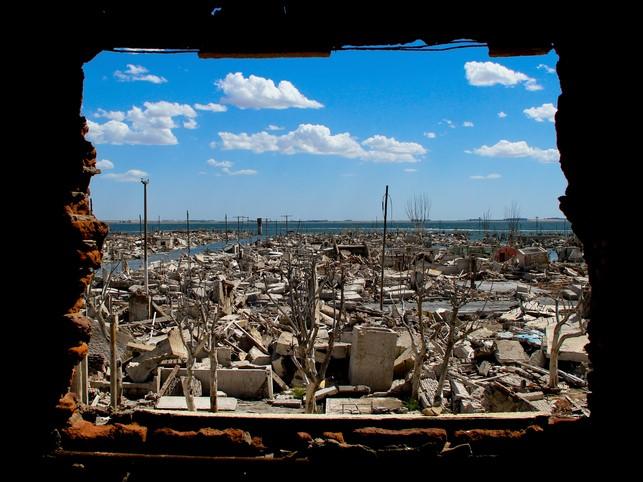
Lessons learned teaching online, from wi-fi woes to war zones
Human issues, particularly willingness to contribute to discussions, were more significant than tech issues when teaching across borders to diverse audiences, says David Mould

You may also like
Popular resources
“Think of it as a tour.” For first timers to online learning, we used a simple analogy and a reassuring tone in the introduction to a course on communication for development. “You’ll visit interesting destinations, acquire new knowledge and skills, and share your experiences with your travelling companions. As online facilitators, we are your guides.”
The analogy came with a travel advisory to keep up with the rest of the group − on readings, discussion posts and tests. “Your group arrives at a site. Your guide explains what you’re looking at and why it’s important. You read the section in the guidebook and talk with other group members about it. Then you all move on to the next site. If you linger at the first site, you’ll have no one to talk to and you’ll miss the discussion at the next site.”
For six years, under a contract between Ohio University and the United Nations International Children’s Emergency Fund (Unicef), I led a team of faculty and postgraduate students that designed and delivered a blended-format course for Unicef staff. Those who completed a four-month online course were invited to a two-week workshop, hosted by Ohio University for two years, by the University of the Witwatersrand in South Africa for three years and, in the final year, by the University of Hyderabad in India.
Each year, we faced the challenge of building a virtual community where participants would learn not only from their guides but from each other. We had to keep the tour on schedule and sometimes turn the tour bus around to pick up stragglers.
We had expected technology – most likely internet access and bandwidth − to be the main barrier to learning, so we provided backup, shipping interactive DVDs and workbooks. By the fourth year, most participants no longer needed them. Human issues, particularly readiness to contribute to online discussions, were more significant.
We have come up with seven issues that higher education institutions may want to consider as they teach across borders to diverse audiences.
Time zones
Because participants were in many countries, asynchronous learning was the only option. Some wanted live interaction with facilitators, so we tested topical webinars and scheduled office hours, but few showed up. At the same time, some complained that they did not receive immediate feedback on discussion posts. We reminded them that their facilitators, also in several time zones, needed to sleep, too, but would try to respond within 24 hours.
The long learning weekend
The course was divided into three modules, each with four to six weekly units. We estimated that it required six to eight hours of work per week, but that was no more than an educated guess; participants with different learning styles and language abilities needed more or less time. Most told us their jobs gave them little time during the regular work week. To give them wiggle room, we extended the “weekend” to Monday morning (eastern time, US), then we shut down the link to that week’s discussion topic. No one was going to read or comment on late posts. The group had moved on to the next site.
Brevity and honesty
For the first two years, we did not set word limits for discussion posts. Some participants were refreshingly brief and to the point; others rambled on for several hundred words more than their argument was worth. Some cut and pasted from the readings, usually without attribution. We then set word limits and issued guidelines on plagiarism, with the occasional repeat offender being dropped from the course.
Language barriers
Some jumped into discussions early, frequently and enthusiastically; others wandered in occasionally and left without saying much; some remained silent, although the grading structure required a minimum number of postings. We knew some non-native English speakers might be reluctant to post because they feared errors in grammar and spelling would make them look bad. We quietly worked behind the scenes to tidy up their postings and boost their confidence.
Peer learning
Participants often addressed comments to the facilitator rather than to the rest of their group. The greatest challenge, one facilitator wrote, was “managing the range of experience and levels of input. Often it felt like a series of one-on-one conversations in a group forum, starting fresh with each individual post.” We never achieved a high level of horizontal peer learning, but on some topics the discussion flowed freely. We were able to prod and encourage but mostly stay out of it.
Help when you need it
Some participants, especially those from traditional systems where the teacher is regarded as the sole source of knowledge, were overly deferential to the facilitators. Their go-to person was a group administrator (GA), a postgraduate student who looked after each group of 25 or so participants. Facilitators came and went, depending on their module assignments, but the GA was always there to help. Communications were conducted back-channel on email, as the GAs provided technical, content and often emotional support. They were the ones who turned the tour bus around to pick up the stragglers.
Humility and patience
Learning goes both ways. As facilitators, we came to appreciate the challenges participants faced in keeping up. If they were in a remote region, they might not have electricity, let alone internet access. One, based in Goma, the capital of the conflict-ridden province of North Kivu in the Democratic Republic of Congo, acknowledged he had not made many discussion posts. “We were dealing with half a million refugees, cholera and malaria. And the M23 militia were at the gates to the city,” he told me. He had been in real danger, yet still apologised for missing our deadlines. I told him he was welcome back on the bus.
David Mould is professor emeritus of media arts and studies at Ohio University, US. From 2011, he directed a global training course on communication for development for Unicef, with more than 400 staff members completing online modules and a two-week workshop.


